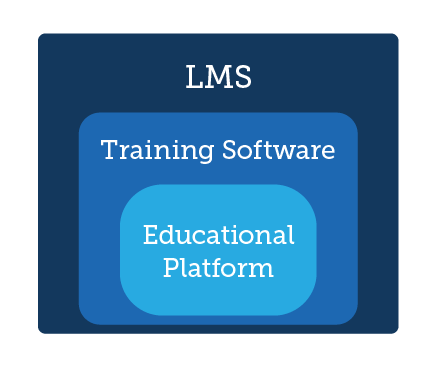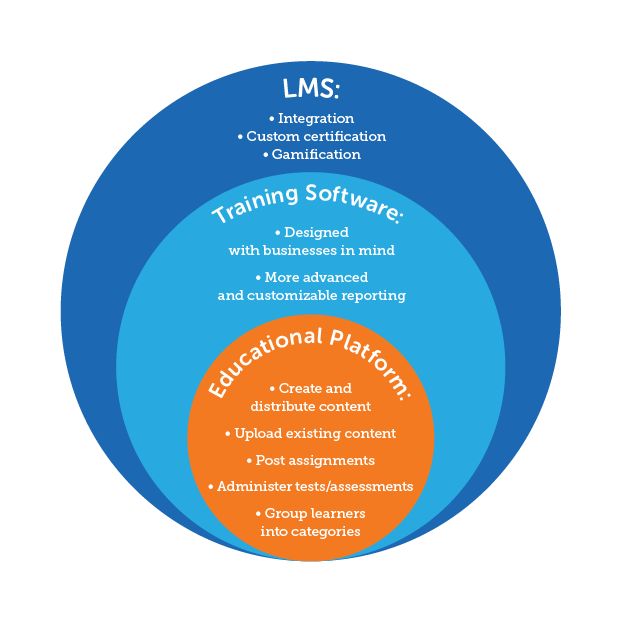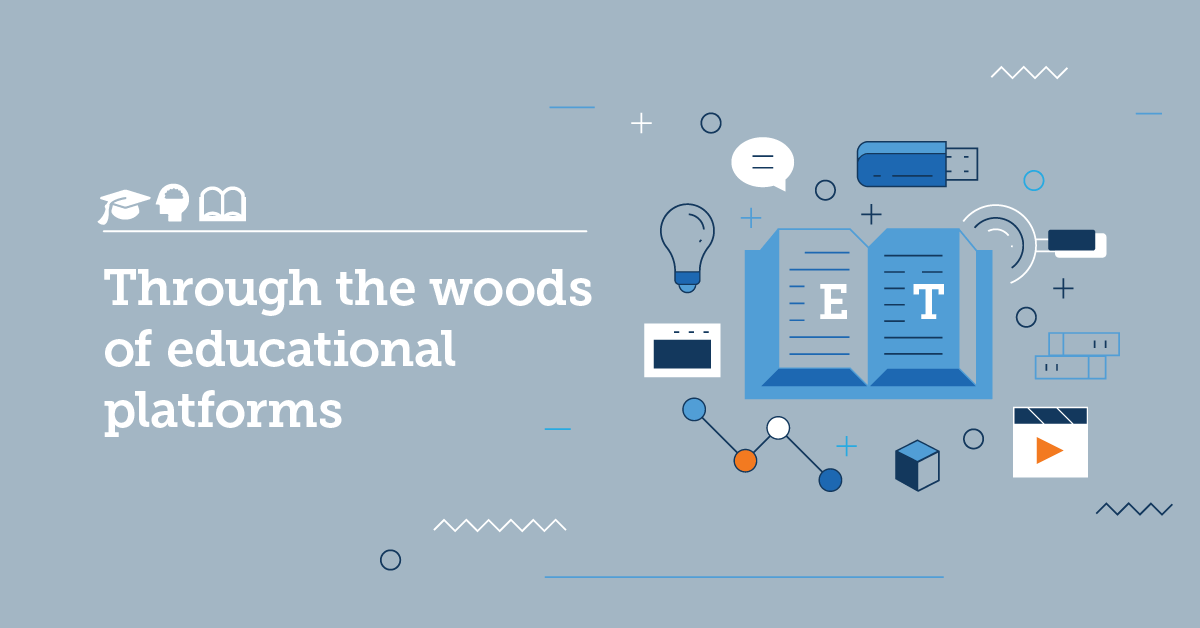Educational platform. Training software. LMS. You’ve probably been using at least one of these words to search for a solution to your training problem. Maybe your materials are disorganized. Maybe your people are scattered across different locations. Maybe different employees need different training, and a one-size-fits-all onboarding seminar is just not cutting it anymore.
You’ve reached a point where you need a simple way to implement your existing training for your employees. Or your current training system might just not be working for you anymore.
But, you just can’t figure out the difference between all these names. Are they the same? Are they distinct?
Educational platform, training software, LMS: what do they all mean?
Fear not. Allow us to pull back the curtain on all of these confusing terms. We’re here to help explain the features and differences between each of these, so that you can pick the right online teaching platform for you.
You may have been using words like “LMS software” or “LMS system” to search for available training software. At first glance, all 3 of these tools appear to be quite similar. They are all types of online learning platforms. So, it makes sense that you might be using all of these terms when you’re searching.
Despite their similarities, the terms stand for three different things. And being aware of the differences will help you decide which solution best fits your company. But, before diving into the specifics, what does each term mean?
Educational platform: any computer software that serves an educational purpose. In this context, “platform” refers to something that exists online. You use an educational platform to learn stuff.
Training software: computer software that serves the purpose of training people (usually employees) in specific skills. You use training software to learn specific skills.
LMS: This stands for learning management system. It is similar to online training software and it allows users to create, organize, and assign educational courses. You use an LMS to learn stuff.
The important thing to remember here is that they’re all used to learn things.
Now that we understand the basic definitions, let’s get into the specifics of each.
There are important differences between these educational technology tools when we consider the different topics that people want to learn about by using them. Is an LMS an educational platform? Objectively, yes. Is an educational platform always also an LMS? Definitely not.

To make this simpler: an LMS is training software, and training software is an educational platform. So, an LMS has all of the features of training software and educational platforms.
Reap the benefits of online training with a full-featured LMS
From small businesses to large enterprises to educational organizations,
TalentLMS is the platform that users consistently rank #1.

What is an educational platform?
The easiest way to understand the difference between an educational platform and training software or LMS is to consider the different ways in which people use them.
When you hear “educational platform”, you should think of schools or universities. Universities use these platforms to organize students into classes under a professor’s instruction.
Educational tools like these are used for uploading and downloading resources like lessons, notes, and assignments. Most educational platforms offer discussion boards where multiple users can interact with each other. They also offer at least basic testing features, where students can complete assessments online and submit them for grading.
Some learning platforms even allow for video and audio uploading. But the vast majority don’t seamlessly support features like live lesson streaming, video conferencing, or integration with other online tools.
Essentially, educational platforms are online teaching tools used for blended learning. This is a combination of in-person and online learning. We find them frequently used in higher education because it’s a tool that allows learning to continue even after students have left the classroom. So, it’s unlikely that this kind of platform will be the best solution for a company’s training needs.
What should I use for my business? Training software or an LMS?
Now, the terms “training software” and “LMS” are more closely related to each other than they are to the educational platform. You could sometimes use the two interchangeably. But since our goal here is to be crystal clear, we won’t. Here’s why:
Training software gives you the ability to create online courses, organize employees into groups, assign training to users, and run tests and assessments. In all of these capabilities, it is the same as an LMS.
But, while an LMS can have all those features, it also has more. Here are some of the additional things you’ll find in an LMS:
- Reporting: The system will gather and synthesize data about user progress/ training completion, and other metrics you can choose from that satisfy your specific needs.
- Integration: You can smoothly connect and sync your LMS with other tools or programs you’re already using.
- Certification: You can allow users to earn downloadable certificates once they’ve finished a course. Ideally, your LMS should allow you to customize these certificates as you wish, adding a company logo or design of your choosing.
- Gamification: This allows employees to earn points for the time they’ve spent learning, as well as for courses that have been successfully completed. They can compete with other employees and track their rankings on leadership boards.
Are these the only features an LMS can have? Absolutely not. These are the basics. An LMS can offer many more choices.
It’s also possible that a piece of training software may have some of these features as well. The difference between the two terms? When we say training software, it may have some of these things. When we say LMS, it will have these features.
Should you come across an LMS that is lacking in any of these, then that should show you that you’re not getting the best possible value for your money.

The solution to better training is closer than you think
Understanding your specific needs is the first step to choosing the right online learning platform for you. Armed with this information, as well as a clear understanding of the differences between various kinds of online learning software, you’ll be ready to pick the best solution for your employee training.
So, don’t get lost in the woods when it comes to navigating the different terminology. The road that takes you to the right training solution is closer than you think!
